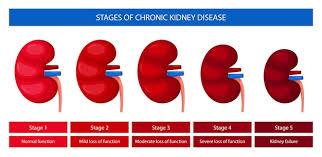

Layla Hahn
Corona Del Mar High SchoolClass of 2025Newport Beach, California
About
Hello, my name is Layla Hahn and I had the wonderful opportunity to work under the mentorship of Celeste Callaband to produce this collaborative research project. The subject matter was influenced by my grandfather's condition which was discovered when he was hospitalized after a heart attack. After two months in the hospital, he was told that his diabetes and heart failure scarred his kidneys so much that he needed dialysis for the rest of his life. This experience coupled with having a dog with special needs inspired me to investigate and learn about the effects on both humans and domestic animals. I hope you enjoy it!Projects
- Review of Chronic Kidney Disease and Comparison between Humans, Dogs, and Cats with mentor Celeste (May 26, 2022)
Project Portfolio
Review of Chronic Kidney Disease and Comparison between Humans, Dogs, and Cats
Started Jan. 27, 2022

Abstract or project description
The kidney is the body’s filter and when it is damaged, the body no longer functions the way it should. When enough damage has occurred to the kidney, the kidneys will slowly start to fail resulting in chronic kidney disease (CKD). There is no cure for CKD and it gets progressively worse over time. CKD affects a wide variety of animal species, including humans, dogs, and cats. We will be comparing CKD prevalence, symptoms, risk factors, and treatment modalities. There are many similarities in disease diagnosis, monitoring, and treatment between the species. There are also key differences in each species' physiology that result in different diagnostic and monitoring parameters as well as differences in the treatment options available. We compare CKD treatment options that include kidney transplantation, dialysis, hypertension, and nutrition. As part of the One Health movement, understanding these similarities and differences will help us better understand the disease process and hopefully improve treatment outcomes across species.